
I WAS 10 YEARS OLD when Arundhati Roy won the Booker Prize for The God of Small Things. It had a special significance for me because I studied in the school founded by her mother, and where she herself had studied. In a way, I felt like I had a claim over her. She was mine before she was the world’s. As a kid, Roy was my idol. If I couldn’t be her, I wanted to be like her. I wanted to dress like her, walk like her, talk like her…. Most of all I wanted to write like her. I tried to make my words pirouette on the page like she did and to mine profundity out of them. Her words were like shards of glass that reflected the world in new and wondrous ways. Mine, however, creaked and groaned like an unoiled door hinge.
Still, I had been Arundhati-ed, once and for all. She had bent my life out of shape, and now, like a faulty safety pin, it could not be straightened back. I wonder if she ever guessed at how she inspired a small-town girl from the back of beyond to become a writer. How, without knowing, she had cast a stone whose ripples would be felt far and wide in my life. In my childhood, wanting to follow in her footsteps was not a desire; it was a cold, hard ache. Today, however, if I were to follow her, I might very well be walking into jail.
This story is from the July 21, 2024 edition of THE WEEK India.
Start your 7-day Magzter GOLD free trial to access thousands of curated premium stories, and 9,000+ magazines and newspapers.
Already a subscriber ? Sign In
This story is from the July 21, 2024 edition of THE WEEK India.
Start your 7-day Magzter GOLD free trial to access thousands of curated premium stories, and 9,000+ magazines and newspapers.
Already a subscriber? Sign In
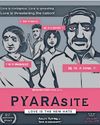
POSTERS OF PROTEST
Appupen is a cartoonist who has published a few graphic novels, the latest being Dream Machine, about how AI can be a great 1 tool for an! authoritarian regime.
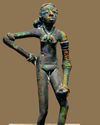
CLASH OF THE CIVILISATION
Even as the discovery of the Indus Valley Civilisation completes a century, some key aspects of this ancient culture remain mysterious, including its script. While the controversy over whether it was disrupted by an Aryan invasion may now be discredited, the debate over Indus ancestry and current links continues

A PROVEN PATHWAY TO PEACE
Low-cost, easy to implement, immediate results, and scientifically verified.
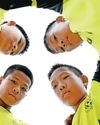
FOOTBALL GIVES THEM A KICK
For the children of Manipur and Mizoram, the great game is a way to a prosperous future
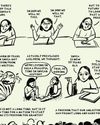
BATTLE FOR TOMORROW
Over the past decade, much has been said about India's potential as a leading global power.

THE TONGUE THAT TURNED
Why Greek survived while Latin and Sanskrit declined
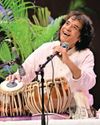
USTAD ZAKIR HUSSAIN 1951-2024: HIS MUSIC WAS THERAPY TO THE WORLD
Flautist and Grammy co-winner Rakesh Chaurasia remembers the maestro
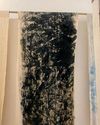
The magic of indigo
I really can't imagine why more of us don't throng Goa each December for the Serendipity Arts Festival alone. The festival, in its ninth year now, has the entire Panjim town celebrating.

NEW YEAR.NEW HOPE
EQUITY MARKETS HAVE TURNED VOLATILE OF LATE. WHAT TO EXPECT IN THE NEW YEAR

Seeking middle ground in Middle East
The collapse of assumptions is like the end of the world-or worldview. We assumed conwith the 20th century. But wars in Russia-Ukraine, Gaza, Yemen, Sudan, Somalia and Lebanon prove us wrong. Western defence officials now raise the nuclear threat level.